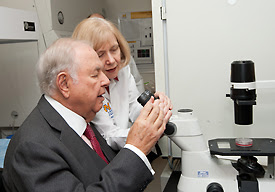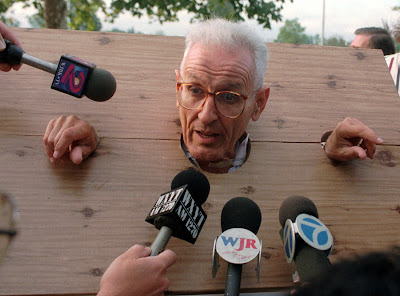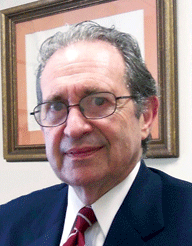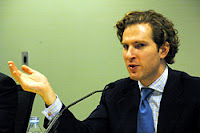When discussing brit milah (Jewish ritual circumcision), I believe it is important to be open and honest. I firmly believe that this mitzvah (commandment) is of paramount importance to the Jewish people and that we must ensure that it is done safely throughout the world to ensure that it continues for generations to come.
 |
| iStockPhoto |
The Centers for Disease Control and Prevention (CDC) recently published a report revealing that a total of 11 newborn males were infected by the herpes simplex virus in New York City between November 2000 and December 2011. Of these 11 cases, the parents of 6 of the newborns acknowledged that the mohel (ritual circumcisor) had performed metzitza b’peh during the bris. Metzitza b’peh is when the mohel places his mouth directly on the newly circumcised penis and sucks blood away from the wound. The vast majority of physicians have ruled that this aspect of the brit milah ritual must be forbidden for the obvious health risks involved.
Many people presume that only the most ultra-Orthodox communities still include metzitza b’peh in the bris ceremony. However, this month I heard of a bris that took place at Keter Torah Synagogue, a local Sephardic congregation in West Bloomfield, Michigan in which the mohel in fact performed metzitza b’peh. It is imperative that Jewish physicians and other Jewish professionals in the health care industry as well as rabbis insist that metzitza b’peh is no longer practiced. The health risks are evident and with Jewish ritual circumcision under attack, it is unwise to allow an unhealthy and dangerous aspect of the ritual to persist.
Just one year ago, there was a ballot measure to ban circumcision in San Francisco. That measure would have outlawed circumcision on males younger than 18, except in cases of medical necessity. No religious exemptions would be permitted according to this measure. While that measure was shot down, a German court this week banned the circumcision of young boys for religious reasons. This ban on ritual circumcision applies to the Cologne region of Germany. According to MSNBC:
The court in the western city of Cologne handed down the decision on Tuesday in the case of a doctor who was prosecuted for circumcising a four-year-old Muslim boy. The doctor circumcised the boy in November 2010 and gave him four stitches, the Guardian reported. When the boy started bleeding two days later, his parents took him to Cologne’s University hospital, where officials called police. The doctor was ultimately acquitted on the grounds that he had not broken a law. The court ruled that involuntary religious circumcision should be made illegal because it could inflict serious bodily harm on people who had not consented to it. The ruling said boys who consciously decided to be circumcised could have the operation. No age restriction was given, or any more specific details.
The Central Council of Jews in Germany called the ruling an “unprecedented and dramatic intrusion” of the right to religious freedom and an “outrageous and insensitive” act.
Several Conservative Jewish groups including Masorti Olami, Masorti Europe and the Rabbinical Assembly of Europe have joined with the Central Council of Jews in Germany in condemning the decision of the district Court in Cologne. In a joint statement, they explained:
The circumcision of 8 day old male babies remains an important and meaningful rite in the lives of Jews all over the world. No other country has outlawed circumcision and this new legal decision impinges upon the religious freedom of Germany’s citizens be they Jewish or Muslim and the rights of other parents who wish to circumcise their sons.
A brit milah, as the circumcision ceremony is called in Hebrew, is one of the first mitzvot (or commandments) that God asks of Abraham. Just as Abraham observed the commandment, so too have his Jewish descendants over 1000s of years. While the Masorti movement consistently balances the needs of modernity against the needs of halacha or Jewish Law, there is no overwhelming proof that the circumcision of newborn boys causes any “irreversible damage against the body” as stated in the German court’s decision. On the contrary, medical research has shown that circumcision can reduce the risk of HIV infection, penile cancer and other urinary tract diseases.
The over 1.7 Million people in the 900 congregations and organizations in 45 countries represented by the Masorti (Conservative) Worldwide Movement call upon the Government of Germany to quickly work to reverse this grievous course of curtailing religious freedoms and dictating fundamental actions of faith communities.
 |
| Source: etsy.com |
It is my belief that a war is being waged on ritual circumcision. In order for it to be preserved for future generations there must be compromise. We must be honest that it is an odd religious ritual in the 21st century, but it is a core part of both the Jewish and Muslim religions. In order to try to curtail some of the controversy surrounding brit milah, I propose the following:
1) Any individual who will perform a brit milah must have a signed certificate that they went through a course of training in which health and safety guidelines were learned.
2) Any individual who will perform a brit milah must sign an agreement that metzitza b’peh will not be performed under any circumstances as it endangers the livelihood of the infant boy.
It must also be acknowledged that ritual circumcision is a medical procedure and it is unique in that it is most often performed in a living room or synagogue. I would love it if there were some certification program in which mohalim had to be re-certified every ten years to ensure compliance. Brit milah is often learned through an apprenticeship and there’s nothing to ensure that an elderly mohel is still physically able to perform the ritual adequately.
Finally, we must acknowledge that the idea of friends and family gathered in a living room watching a newborn baby undergo a medical procedure is not for everyone. Conceding that brit milah should be performed in a hospital would only encourage parents to have the circumcision performed before the required eighth day and that is not advisable. Rather, mohalim should give the option of performing the brit milah in a more private setting and then the religious ceremony can take place for the larger assembly. While this would alter the traditional nature of the brit milah ceremony, it would also guarantee that there’s an understanding that the ritual is also a medical procedure that deserves both privacy and a safe and sanitary environment.
By continuing to pretend that there’s nothing odd about a newborn baby boy having a surgical procedure in a living room in front of dozens who eagerly wait for the bagel and lox spread to open is a mistake. We must acknowledge that this is a unique religious ritual in the 21st century. We must admit that there is some pain for the infant, but that it is not long lasting (an anesthetic should be encouraged but not required). We must ensure that there is some uniform compliance on the part of the practitioner (mohel) for the sake of the health and safety of the baby. And we must insist on a complete ban on metzitza b’peh with no exceptions.
With these guidelines in place, we will be better positioned to counter any legislation — whether in San Francisco or in Germany — that could put Jewish ritual circumcision in jeopardy.





